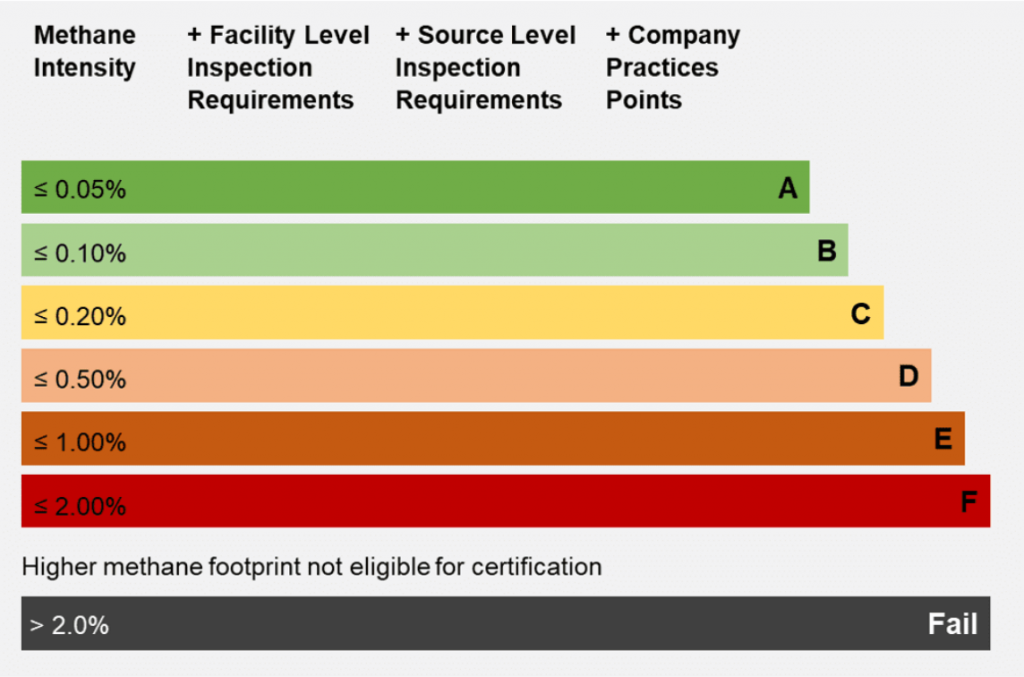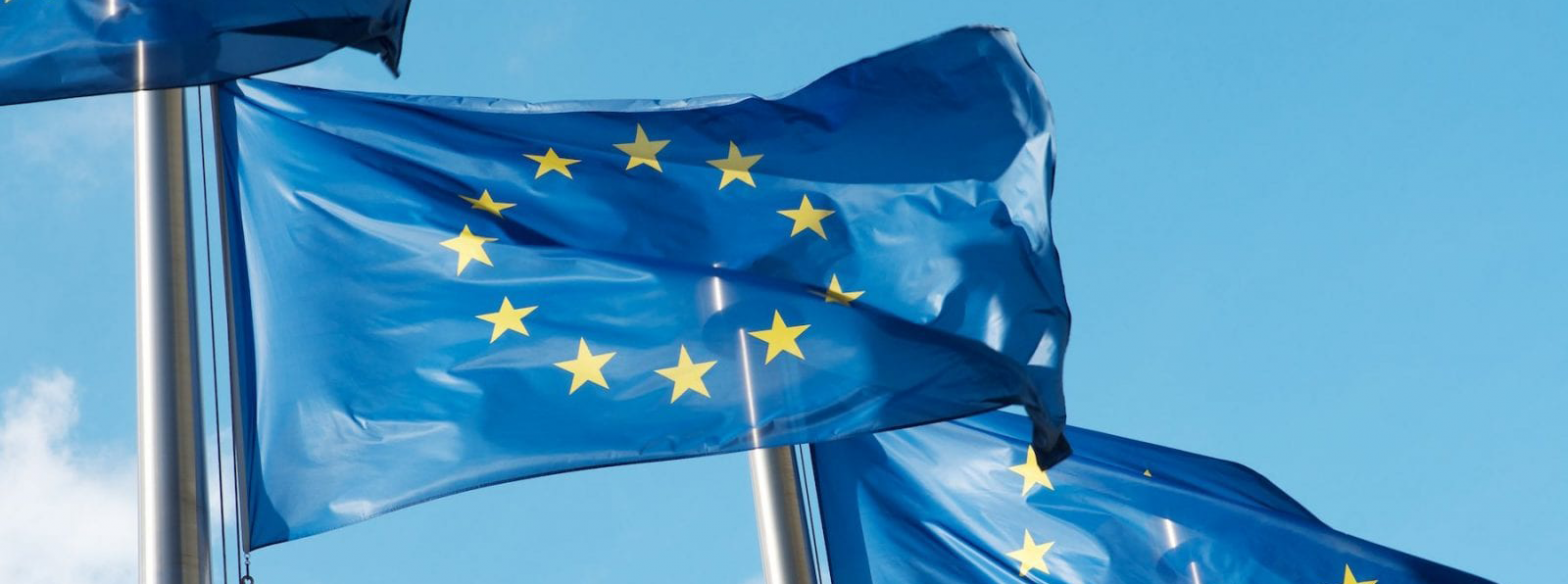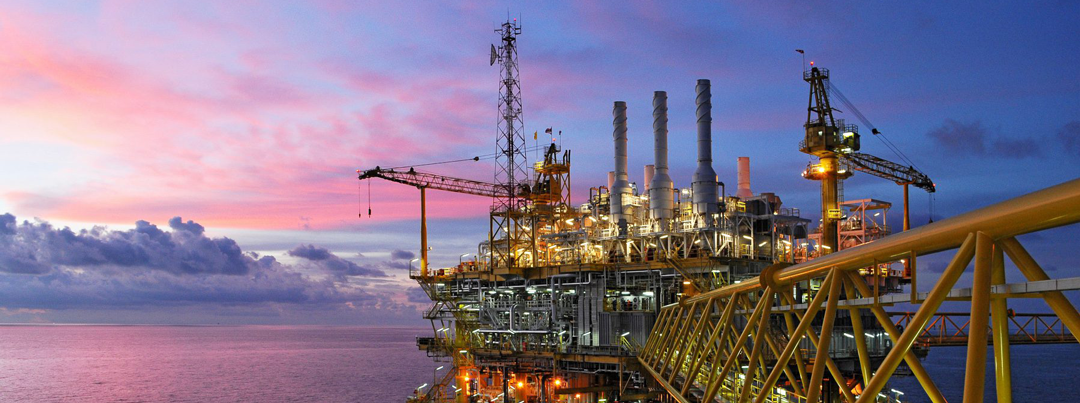Certification can significantly reduce methane emissions and simplify complex import regulations for the EU
Summary
To avert a global climate disaster, greenhouse gas (GHGs) emissions must be halved by 2030. The oil and gas industry produces over 80 million tonnes of methane a year or 7 billion tonnes of CO2eq, the vast majority of which could be abated at little to no extra cost. The EU Methane Strategy set out a legislative framework for reducing emissions across the EU, but it also needs to look beyond the EU 27 Member States and address emissions from imports around the world.
- The EU is heavily dependent on imported natural gas. To reduce methane emissions in the energy sector, imported emissions must be taken into account.
- For import regulations to be effective, each individual batch of gas entering a regulator’s jurisdiction would need to include a credible assessment of its methane emissions performance.
- To make this enforceable, an independently audited and globally applicable certification system is needed to create a level playing field. Certification would provide a credible assessment of the methane emissions performance of all natural gas production around the world.
- MiQ Standard and Certification can provide the backbone for such a system, which would see an 80% drop in methane emissions from natural gas in just 5 years.
Any regulatory option to limit methane emissions needs a credible system for assessing all gas, whether domestically produced or imported
The EU’s natural gas dependency was 89.5 % in 2019. Import regulations are therefore imperative for a meaningful reduction in methane emissions. Recent debate around the EU Methane Strategy has focused on which regulatory tools could be used to limit methane emissions in the supply chain, such as:
- Imposing an upper limit on supply-chain methane emissions.
- Imposing a tax or penalty on supply-chain methane emissions above a certain level.
- Incentivising gas with supply-chain emissions below a certain level.
For any of these tools to be effective and accurate, easily comparable data is needed. Buyers, regardless of where they are in the world, need to be able to easily compare the methane performance of every batch of gas they buy. This requires a shift away from reporting at a country or company level to focusing on an asset/platform level, with a uniform approach for measurement. To improve credibility across the industry any regulation must ensure that the data is independently audited and verified.
Like other global supply chains such as food, clothes, and cars which are manufactured, traded and then tracked between sellers and buyers based on internationally agreed standards and methodologies, the gas will need to be tracked between the seller and the buyer. All batches of natural gas should therefore be accompanied by credible evidence of its methane emissions performance based on universally applicable standards.
It is not currently possible for the EU to audit supply chains outside its own jurisdiction. Thus far regulatory equivalence (which would only work on a country not asset level) is not possible and would take years, if not decades, to establish. There is therefore a need for a globally applicable, independent, and third-party validated certification system which producers and transporters would need to adopt to access the EU market.
MiQ Certification can form the basis of this system
Launched in late 2020, MiQ is a global not-for-profit partnership between SYSTEMIQ and RMI that certifies the methane emissions performance of natural gas at a platform/asset level. This means that any batch of MiQ certified natural gas arriving at an EU entry point would have undergone a rigorous assessment of its methane emissions performance. Voluntary certification of global natural gas production will start this year. The entire process is audited by a third party, allowing for the results to be used for regulatory purposes. It will:
- Credibly characterise the methane emissions performance of gas today – Assessment of methane emissions performance is made against three criteria (see figure below) – methane intensity, policies and procedures for methane management, and monitoring technology deployment.
- Guarantee credibility, transparency and flexibility through third party audits – Each MiQ Certification is independently audited and verified by established and trusted auditors with in-depth expertise in methane emissions management, calculation and monitoring.
- Assess the full supply chain up to the EU entry point – Data is collected on an asset-by-asset basis, ensuring certification is based on the most granular level possible. Ultimately, each yearly production period will be ex-ante validated and ex-post verified, ensuring that each LNG cargo imported or batch of natural gas entering the EU system by pipeline will be accurately and reliably certified by an independent and approved auditor.
- Be compatible with existing and future voluntary actions – The MiQ Standard already works alongside international best practices and voluntary agreements. The Standard will increase the technical requirements for determining methane emissions as technology evolves, including alignment with OGMP 2.0 Level 4 and 5.
- Set out a simple grading system – The MiQ grades are on an A-F scale, which are easily understood and provide a quick reference point for the buyers and regulators to understand the methane performance of every batch of certified gas.

- Be applied globally – MiQ Certification is designed with the global natural gas supply chain in mind. Global gas producers such as NOC’s and IOC’s can therefore certify their facilities for EU imports but also other destinations such as Asia.
- Adopt a Life Cycle Assessment (LCA) concept up to the point of entry – MiQ follows the certified gas along the supply chain from the production asset to entry to the importing zone. The MiQ global registry accounts for the movements of the certified gas to avoid any potential double counting.
While similar certification systems have been used extensively as the basis for voluntary (non-compliance) reporting, they have also been used successfully to enable regulatory regimes. In the energy sphere, for example, certifications systems have formed the basis of the guarantee of origin system for green electricity trading in the EU. I-RECs have been mandated or allowable for renewable electricity imports to guarantee the origin and CO2 emissions of electricity consumed, regardless of whether it was produced within or outside their jurisdiction. Guarantees of origin for biomethane production are also allowable in certain green fuel compliance schemes within Europe.
The EU needs a transitional framework to reduce emissions and ensure security of supply
Strict methane intensity limits at country or company level (e.g. a methane intensity limit of 0.2%) would exclude the bulk of current imports at a stroke. To prevent security of supply issues, the industry will need time to transition at a granular asset level from the current global average of 1.5% to 0.2%.
In phase one, obligated parties (whether importers and domestic producers, gas shippers, or suppliers of gas to end-users) would be required to disclose supply-chain methane emissions for an increasing proportion of their total gas sales over time. Such disclosure would be in accordance with an approved methodology or standard and reporting framework (such as the MiQ global registry).
In phase two, regulators could only allow natural gas imports from assets with a maximum level of methane, say 1%. Over time this would tighten to improve standards across the industry. Certification would ensure that all the data is verified by a third party and would provide an independent reporting framework to mitigate any issues with self-reporting.
With certification, EU methane emissions from imported natural gas could be reduced by 80% in 5 years
The table below illustrates how a phased approach to reducing emissions can work in practice using MiQ certificates to evidence methane emissions performance.
| Year | Disclosure requirement (% of sales) | Methane intensity hurdle | MiQ Grade of certificates to delivered |
|---|---|---|---|
| Year 1 | 20% | No requirement | Max Grade F |
| Year 2 | 50% | No requirement | Max Grade F |
| Year 3 | 100% | < 1.0% | Max Grade E |
| Year 4 | 100% | < 0.5% | Max Grade D |
| Year 5 | 100% | < 0.2% | Max Grade C |
Implementing either a tax on natural gas with methane intensity above a certain limit or an incentive on natural gas with emissions below a certain methane intensity could equally be considered. Under an incentive regime, obligated parties delivering MiQ certificates of, for example, Grade C or better could be awarded a subsidy. Under a taxation or penalty system, obligated parties might be required to submit certificates of at least Grade D, say, or otherwise pay the penalty. Obligated parties could be the gas importers (EU gas shippers) or the gas suppliers to end users (utilities) – there are positives and negatives to each approach.
Assuming such an approach, was adopted in 2022, the methane emissions for natural gas imported into the EU would be reduced by more than three-quarters by 2026. This is a reduction from 2.3 million tonnes per annum to 0.45 million tonnes, based on a recent analysis of methane intensity of imports and Eurostat data on 2019 EU gas imports.
In implementing such a policy, the EU would be clearly demonstrating its leadership on emissions reduction. Companies exporting to the EU will start to certify the methane emissions across their operations, which in turn would drive down the cost and improve the availability of methane abatement and measurement technologies globally.
Next steps on methane emissions certification for natural gas imported into the EU
The EU Methane Strategy demonstrates the EU’s desire to reduce emissions across the natural gas supply chain. Given the EU imports the vast majority of its natural gas, import regulations for methane emissions performance will be essential. Import regulations should be underpinned by a globally applicable certification scheme that provides the detail and clarity needed to accurately assess the methane performance of gas entering the EU, regardless of where it comes from. MiQ is such a system and will be adopted by natural gas producers on a voluntary basis in 2021.



